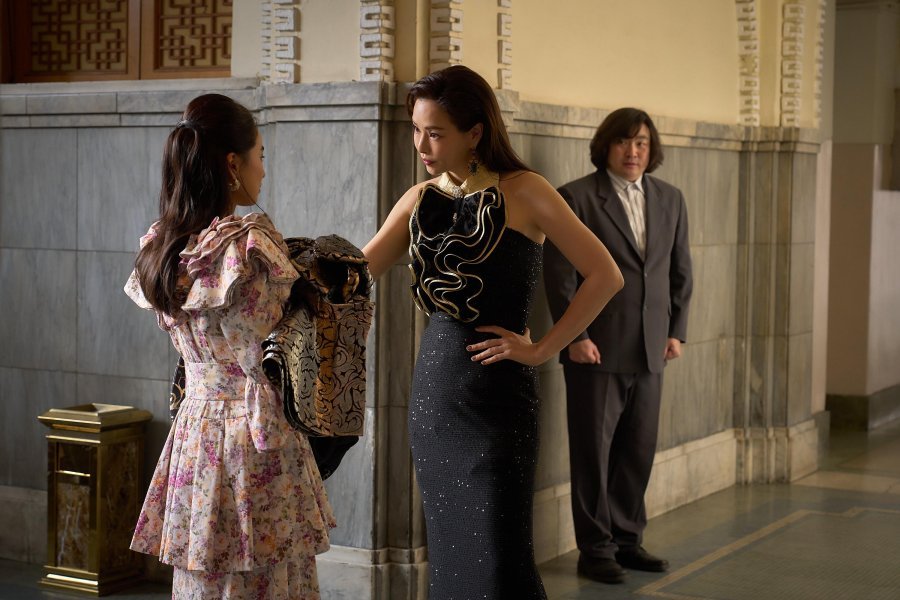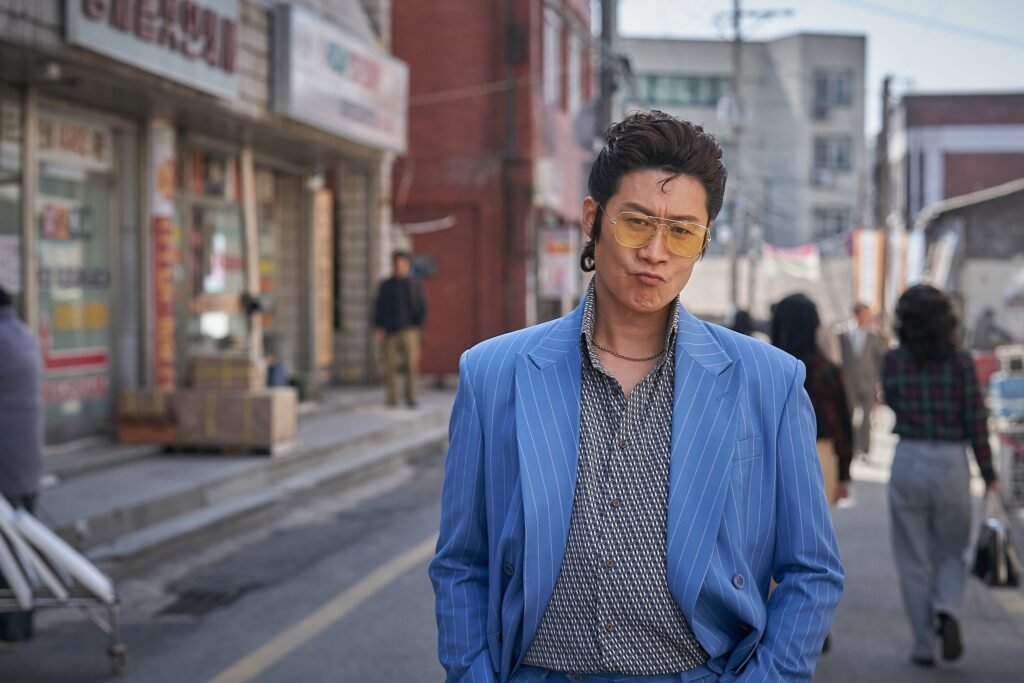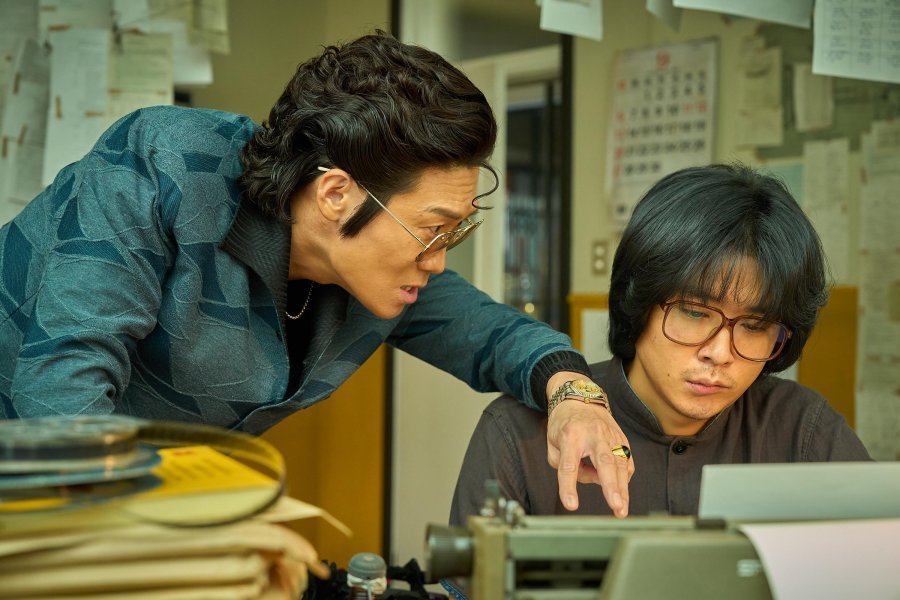Aema Review

Director: Lee Hae-young
Date Created: 2025-08-22 20:52
4.5
Aema Review: Lee Hae-young’s Netflix Korean drama 애마 is a wonderful show with only six episodes, each approximately 55 minutes long. Based on the 1982 classic film Madame Aema, this drama takes us back to the 1980s when the South Korean film sector was at a turning point.
The drama is quite literally about two women—seasoned actress Jung Hee-ran, portrayed by Lee Hanee, and the ambitious and rising star Shin Ju-ae, portrayed by Bang Hyo-rin. Supporting them alongside is producer Koo Jung-ho, portrayed by Jin Seon-kyu, and director Kwak In-u, portrayed by Cho Hyun-chul, and there is a good supporting cast that assists with the drama. At first glance, the series is about ambition and competition, but under the glitz is a tough critique of exploitation, survival, and the price of fame in a man’s world.
Korean Drama Aema Review
From the titles, Netflix Korean series Aema appeared to be a glamorous drama about actresses jostling for headlines. But as the episodes went on, I learned that it was much more complicated. This series uncovers the suffering women had to go through under the show business of the 80s, and more lamentably, most of those sufferings hold true even today. Contrary to other shows that sensationalise film life, this show presents it in all its gritty form—uneven contracts, exploitation, and the psycho-trauma that women who only want to pursue their dream go through.

The jewel of the Aema Korean series is the character and how it is portrayed. Bang Hyo-rin, as wide-eyed Ju-ae, stole my heart completely. Her character is one of a naive yet passionate one, and seeing her develop shattered my heart and encouraged me. She personified the vulnerability of a human being who is attention-seeking yet clueless about how much she has to give up.
Lee Hanee was otherwise a character of repressed pain and toughness as Hee-ran. She is disdainful and tough during the first half, but as the drama progresses, we see the cracks in her facade. What I loved is that the show did not make her a “sexy actress” stereotype—it revealed to us the humanity of a woman who has worked so hard against herself to stay alive in an amoral system.

Supporting actors played their parts, too. Jin Seon-kyu as producer Jung-ho gave me the shivers—his is the shadowy side of filmmaking, where power and money are more important than people. Cho Hyun-chul, playing director Kwak, was the antithesis to this, a man who is still in love with art but mired in the machine. These greys fascinated me more with the series.
One of the reasons why I was addicted to Aema Korean drama while watching was that it was able to mix tension with morsels of reality. Sometimes, I wished that the scenes would freeze because of the rawness of the scenes, especially when Ju-ae was being abused by the elite. But it is exactly that tension that made the show so captivating.
Also Read: Gold Rush Gang Review: Hilarious Twist on Bandits and Legends That’s Too Entertaining to Watch

I also liked how the show situated the world of 1980s South Korea—from production design to costume design, it situated me there. It wasn’t hollow, though; it was about the way the society was then. The actresses were stereotyped, and Netflix’s Aema showed how actresses had to make impossible decisions just to survive.
The other standout was the tone. The play starts out with a cheeky, almost playful tone that eventually gives way to a tragic and tearful one. Episodes five and six are particularly gut-wrenching. Without giving everything away, I can say the two episodes left me wondering at the price of success and the silence so many women had to keep in order to get to the top. That’s when I realised Aema is not merely about the past—it’s also about the world today.

Although I generally enjoyed the series as a whole, it was not perfect. Sometimes pacing was frustrating. Another reason is that although it originated from a film that is infamous for being racy, the Netflix series Aema itself was surprisingly not racy in any way. Although I don’t believe that it could have been any racier, there were moments when I felt like the show did not push as hard as it could have. The program made massive issues but occasionally meandered, and I was somewhat annoyed. But the payoff of the final two episodes emotionally overcame those flaws.
Of most interest in the Korean Series Aema is its combination of individual story and social commentary. It serves to demonstrate how ambition, competition, and survival are inextricably linked to more universal concerns of gender, power, and art. I liked the way that the ending offered some sort of resolution and yet left one wondering. Instead of a fairy-tale ending, it recalled that even victories in such a system carry a price tag.

I also believe that this show is universal outside of South Korea. Anybody watching pop culture or film can observe the same patterns even today—where women get objectified, where producers will do anything for money at the expense of their self-respect, and where actresses have to battle stereotypes in the process. That was what was universal about it and made the show work.
Netflix Aema Review: Summing Up
Overall, Netflix’s Aema is a daring Korean drama that mixes satire, rivalry, and tragedy into a haunting narrative that lingers long after the credits have stopped rolling. The performances are great, particularly from Lee Hanee and Bang Hyo-rin, and the messages are gritty. Sure, the pacing might have been faster and a few scenes tighter, but the impact overall is well worth sitting through.
Also Read: 6 Must-Watch BL Dramas Like Revenged Love with the Same Enemies-to-Lovers Spark
